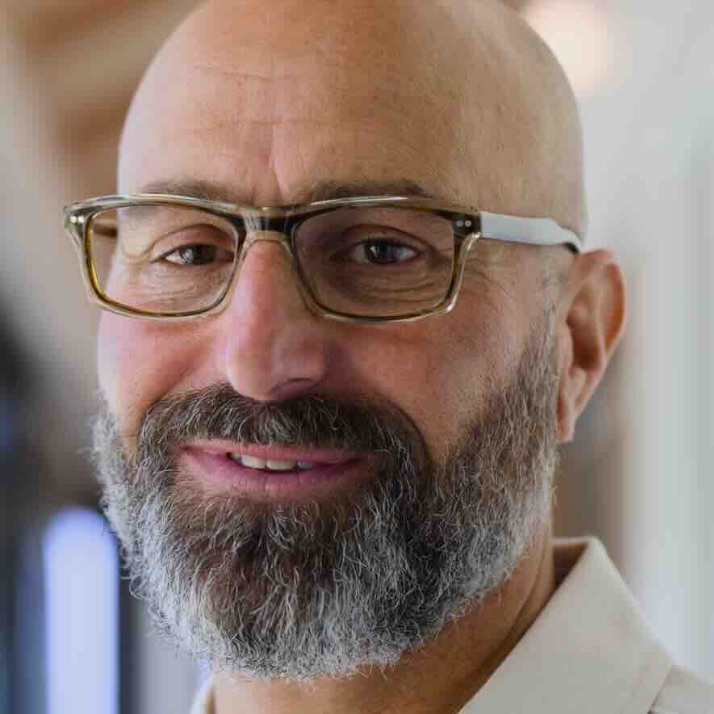A Step-by-Step Guide to Gambling Therapy in Jacksonville
Recognizing the need for help with gambling addiction is the first step—whether you’re noticing mounting debt, strained relationships, or urges you can’t control. Next, use MiResource’s Jacksonville directory to research licensed therapists who specialize in gambling addiction, filtering for in-person care in neighborhoods like Riverside, San Marco, and the Beaches, or virtual options across Duval County. Once you’ve identified a few fits, schedule an initial consultation to discuss availability, insurance, and approach (e.g., CBT, relapse-prevention). For in-person visits, plan for parking—downtown garages and metered spots near the Southbank fill up at peak times, while clinics near St. Johns Town Center and Mandarin often offer free lot parking; JTA bus routes and the Skyway can help if you’re car-free. Telehealth can simplify access if you’re in Arlington, Northside, or commuting via I-95/I-295.
At the first session, your therapist will conduct an assessment, set goals, and outline a personalized plan that may include weekly therapy, financial safeguards, and support group referrals. You’ll then follow through with the treatment plan by attending sessions consistently, completing homework (like urge tracking and budgeting tasks), and adjusting strategies as needed. MiResource makes it easy to compare credentials, availability, and modalities, so you can switch or fine-tune your care without losing momentum. If transportation is a barrier, look for evening or weekend appointments near Downtown or Southside, or choose virtual sessions to avoid parking headaches. Staying engaged and communicating openly with your provider helps you build skills, prevent relapse, and reclaim control.
Guide to Accessing Local Organizations for Gambling Support in Jacksonville
Local organizations in Jacksonville provide practical, nearby help for Gambling addiction, from peer support and counseling to crisis navigation and referrals. They understand community resources, can coordinate care, and often offer low-cost or free options. Start with statewide specialists like the Florida Council on Compulsive Gambling (888-ADMIT-IT) for 24/7 guidance and local referrals , and connect with peer groups such as Gamblers Anonymous meetings in the Jacksonville area . Community-based providers like Mental Health Resource Center , NAMI Jacksonville for family and peer support , and United Way 211 of Northeast Florida for navigation can help with counseling and wraparound services. Hospitals and clinics, including UF Health Jacksonville Behavioral Health , can evaluate co-occurring conditions and coordinate treatment plans.
- Identify: Call 888-ADMIT-IT or use FCCG’s chat/text to get Jacksonville-specific referrals; search GA’s meeting directory for local meetings ; dial 211 or visit United Way 211 NEFL for additional options.
- Verify and choose: Review services, hours, insurance/sliding scale, and eligibility on provider pages like MHRC , NAMI Jacksonville , and UF Health Jacksonville.
- Contact: Call or email to ask about Gambling addiction services, wait times, and intake; request language access or telehealth if needed.
- Engage: Attend a first GA meeting, complete intake with a chosen provider, and set follow-up appointments; ask for family support or case management when available.
Guide to Using Emergency Services for Gambling in Jacksonville
Use emergency services for Gambling addiction in Jacksonville when there is immediate danger: suicidal thoughts or threats, plans to harm yourself or others, violence at home, severe emotional distress, or a crisis triggered by losses, legal problems, or co-occurring substance or mental health issues. If someone cannot ensure their own or a dependent’s safety, get help now. When in doubt, treat it as an emergency and seek immediate support—help is available 24/7.
Step 1: Identify a crisis
- Warning signs include suicidal ideation, threats of violence, panic or despair, talk of “no way out,” psychosis, dangerous withdrawal/intoxication, or inability to stop gambling despite imminent harm (eviction, legal action, child safety at risk).
Step 2: Call for immediate help
- 911 for imminent danger.
- 988 Suicide & Crisis Lifeline (call/text 988).
- Florida Council on Compulsive Gambling – 888-ADMIT-IT (888-236-4848), chat/resources.
- National Problem Gambling Helpline –chat: 1-800-GAMBLER
- LSF Health Systems (NE Florida behavioral health access line) – 1-877-229-9098, .
Step 3: Go to a local emergency room in Jacksonville (24/7)
- UF Health Jacksonville Emergency Room: 904-244-0411
- Baptist Medical Center Jacksonville ER: 904-202-2000
- HCA Florida Memorial Hospital ER: 904-399-6111
- Ascension St. Vincent’s Riverside ER: 904-308-7300
Step 4: What to expect
- A safety-focused evaluation, stabilization, and connection to crisis counseling; referrals to Gambling addiction treatment and financial/legal resources; possible short-term admission if needed. You can bring ID, a medication list, and supportive contacts; urgent care is provided even if you can’t pay.
Guide to Using Parks and Green Spaces in Jacksonville to Support Mental Health
Spending time in nature can lower stress, improve mood, and reduce cravings—valuable support for people managing Gambling addiction. Gentle activity like walking among trees or by the river helps calm the nervous system and restore focus. Jacksonville’s beaches, preserves, and urban trails offer accessible places to reset, practice mindfulness, and reconnect with healthy routines.
Step 1: Find nearby spots
- Explore JaxParks and the Timucuan Ecological and Historic Preserve to locate options close to home.
- Top picks: Jacksonville Arboretum & Botanical Gardens, Kathryn Abbey Hanna Park, Tillie K. Fowler Regional Park, Castaway Island Preserve, Little Talbot Island State Park, Big Talbot Island State Park, and the Northbank/Southbank Riverwalk.
Step 2: Prepare for success
- Choose a low-stress time of day, set a simple goal (e.g., 20–30 minutes), and invite a supportive friend if helpful.
- Bring water, sunscreen, and comfortable shoes; download maps for Timucuan trails or Hanna Park loops if service is spotty.
Step 3: Make the most of your visit
- Walk slowly, notice sights and sounds, and practice deep breathing; use benches at the Riverwalk or quiet paths at the Arboretum for short mindfulness breaks.
- If cravings or urges tied to Gambling addiction arise, pause, label the feeling, and refocus on a grounding cue (feet on the path, breeze, ocean sounds at Little Talbot).
Step 4: Build a steady routine
- Schedule 2–3 weekly outings, rotate locations (e.g., weekday Riverwalk strolls, weekend hikes at Pumpkin Hill Creek Preserve or Tillie K. Fowler).
- Track how you feel before and after each visit to reinforce progress and keep Jacksonville nature as part of your recovery toolkit.
Your Guide to Understanding Gambling
Gambling addiction is a pattern of betting or gaming that becomes hard to control, even when it causes stress, money problems, or relationship strain. People may feel a strong urge to keep playing, chase losses, or hide their behavior from loved ones. It can happen with casinos, sports betting, online games, or even casual wagers, and it affects people of all ages and backgrounds. Common signs include thinking about gambling often, needing to bet more to feel the same excitement, and feeling restless or irritable when trying to cut back. Understanding that Gambling addiction is a health issue—not a personal failure—can help reduce shame and open the door to support.
Recognizing Gambling addiction matters because it can impact mental health, sleep, mood, and self-esteem, and it often comes with anxiety, depression, or stress. Early awareness makes it easier to set limits, seek help, and rebuild routines that support well-being. Support can include talking with a counselor, using self-help tools, or joining peer groups that offer practical strategies and encouragement. Learning the signs and sharing concerns with someone you trust can be a powerful first step toward change. With the right help, recovery is possible and life can feel stable and enjoyable again.
What Gambling Is and How It’s Defined
Gambling addiction, also called gambling disorder, is when someone can’t stop gambling even when it’s hurting their life, finances, or relationships. The DSM-5 (American Psychiatric Association) defines it as a persistent, recurring pattern of problem gambling marked by loss of control, strong urges, and continuing to gamble despite serious consequences. The World Health Organization similarly describes a pattern where gambling takes priority over other activities and continues despite harm. If you or someone you love feels preoccupied with betting, needs to wager more to get the same excitement, or struggles to cut back, help is available and recovery is possible.
Who Gambling Can Affect
Gambling addiction can affect people of all ages, genders, and backgrounds—anyone from a student using a sports-betting app to a parent joining office lottery pools or a retiree visiting a local casino. While certain groups may be more commonly affected, such as young adults, people under financial or work stress, those with a family history of addiction, or individuals with easy access to gambling, it can happen to anyone. Everyday situations like casual bets with friends, online poker nights, or scrolling past quick mobile wagers can add up over time. If you’re noticing concerns, you’re not alone, and support is available.
Why It’s Important to Learn About Gambling
This section, Recognizing the Signs and Symptoms of Gambling addiction, highlights common signs you might notice in yourself or someone you care about. It’s meant to support early awareness so you can take small, positive steps toward help without judgment.
- Spending more time or money on gambling than planned, and finding it hard to stop
- Chasing losses (betting more to try to win back money)
- Hiding betting slips, apps, or bank statements, or feeling the need to lie about gambling
- Frequent thoughts about gambling, like planning the next bet or reliving past wins
- Irritability, stress, or restlessness when unable to gamble
- Skipping work, school, or social plans, or losing interest in usual activities
- Money problems such as unpaid bills, borrowing from friends or family, or selling belongings
What People Want to Know about Gambling
- How do I know if I’m ready to start therapy for Gambling?
You might be ready for therapy when you notice how Gambling addiction is affecting your daily life, relationships, mood, or finances and you want things to change. Feeling curious about why you gamble, wondering what recovery could look like, or feeling tired of trying to manage it alone are strong signs, too. If you’re open to talking with a professional and willing to try small steps, you’re already moving in the right direction. Reaching out for support is a positive, courageous first step toward healing from Gambling addiction. - What should I look for when choosing a therapist who treats Gambling in Jacksonville?
Look for a therapist with specific experience treating Gambling addiction and a track record helping clients in Jacksonville. Ask about their therapeutic approach—such as CBT, motivational interviewing, or addiction-informed care—and how it fits your goals. Verify licenses, certifications, and any specialized training in problem gambling. Choose someone you feel comfortable with in sessions, because a strong personal fit helps you make real progress.
- What are evidence-based therapies to treat this Gambling?
Common evidence-based treatments for Gambling addiction include cognitive behavioral therapy (CBT), which helps you spot triggers, change unhelpful thoughts, and build safer habits with money and time. Motivational interviewing supports you in strengthening your own reasons to change and setting realistic steps toward recovery. Some people benefit from medications like naltrexone, which can reduce gambling urges and cravings when used alongside therapy. Together, these approaches can make stopping Gambling addiction more achievable and sustainable. - How long does therapy for Gambling usually take?
Therapy for Gambling addiction varies by severity, the type of treatment (individual, group, or family therapy), personal goals, and individual progress. Many people see meaningful improvement over several weeks to a few months, though some benefit from longer-term or ongoing support, and timelines can’t be guaranteed. Consistency and commitment between sessions are key to lasting change. In Jacksonville, you can find outpatient counseling, support groups, and integrated treatment options tailored to Gambling addiction.
- Can I combine therapy for Gambling with medication?
Many people find that combining therapy with medication can be an effective way to recover from Gambling addiction, especially when treatment is tailored to their needs. A qualified professional can help you decide whether this integrated approach is right for you and adjust it over time. In Jacksonville, coordination between therapists and prescribers ensures your care plan is consistent, safe, and responsive to your progress. You don’t have to navigate this alone—professional guidance can make the path forward clearer and more manageable.
- How much does Gambling therapy typically cost, and will insurance cover it?
Costs vary by location, provider type (counselor, psychologist, psychiatrist), session length (30–90 minutes), and modality (individual, group, telehealth), with urban Jacksonville rates often higher and initial assessments sometimes priced separately. Insurance may cover Gambling addiction therapy when billed under mental health or related diagnoses, but coverage hinges on your plan’s deductibles, copays, visit limits, and in-network status. To check coverage, call the number on your insurance card or use your insurer’s portal to confirm in-network Jacksonville providers, ask about CPT codes (e.g., 90791, 90834, 90837), preauthorization, and out-of-network benefits. If uninsured or underinsured, seek sliding-scale clinicians, community mental health centers, university training clinics, nonprofit programs, or support groups in Jacksonville, and ask about payment plans. - What can I do between therapy sessions to help manage my Gambling?
Between sessions, practice urge-surfing and a 15–30 minute delay when the impulse hits, using a written coping list to ride it out. Lock down access by installing gambling-site blockers, asking your bank to block gambling transactions, limiting cash, and letting a trusted person help manage funds while you work on Gambling addiction. Build a daily structure with exercise, hobbies, and time with supportive people; avoid high-risk places and unsubscribe from gambling ads. Tap community support by attending Gamblers Anonymous meetings in Jacksonville or online, setting up a daily check-in buddy, and tracking triggers and wins to reinforce progress with Gambling addiction.













